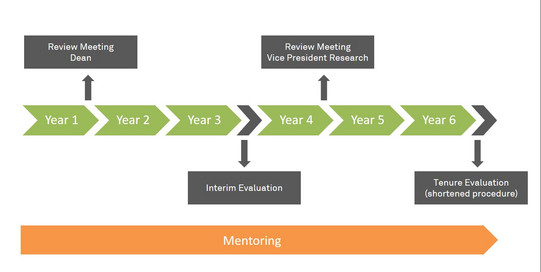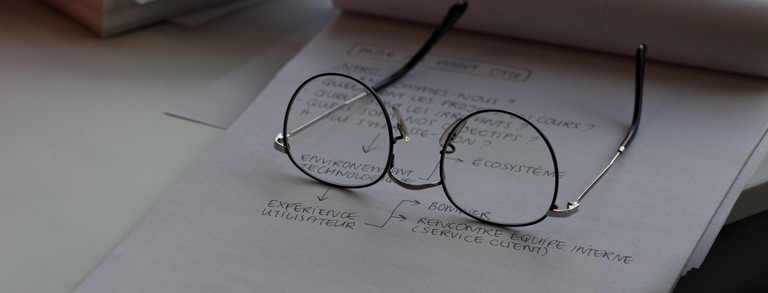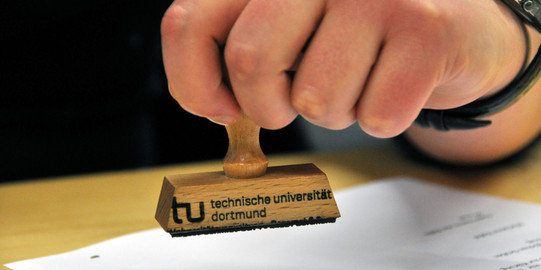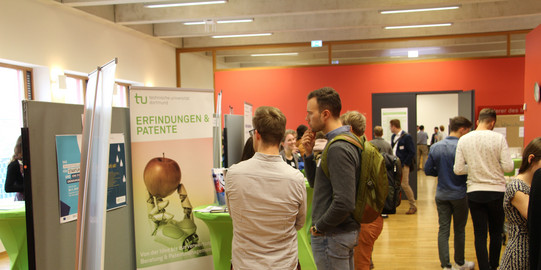JProf TU
TU Dortmund University provides its assistant professors ("Juniorprofessuren") with target group-specific support and training.
Grundlagen disziplinspezifischer Wissenschaftskommunikation (Veranstaltungsreihe)
- TU Dortmund
- Presenting, Communicating & Teaching
- Communicating, Networking, Negotiating
- Kommunizieren, Netzwerken, Verhandeln
- Präsentieren, Kommunizieren & Lehren
- For Junior Faculty
- For Postdocs
- For doctoral researchers
- Für Promotionsinteressierte
- Für Postdocs
- Für Promovierende
Mit dieser Veranstaltungsreihe widmet sich das Institut für Journalistik der TU Dortmund den spezifischen Herausforderungen und Chancen der öffentlichkeitswirksamen Kommunikation der verschiedenen Disziplinen. Dabei beschäftigt sich die Veranstaltung jede Woche mit einer anderen Fachrichtung.
Ob Klima, Covid, Kriege oder globale Krisen – Wissenschaft ist immer gefragt und findet Einzug in öffentliche Debatten und politische Begründungen. Das Wissen über und die Erwartungen an die verschiedenen Wissenschaftsbereiche sind dabei allerdings sehr unterschiedlich. Dabei können Diskurse von einer Vielfalt der Perspektiven aus Natur-, Sozial- und Geisteswissenschaften nur profitieren.
Hier setzt die Veranstaltungsreihe an und vermittelt neben allgemeinem Grundlagenwissen zur Wissenschaftskommunikation vor allem disziplinspezifische Einblicke: Nach welchen Evidenzkriterien wird in meinem Fachbereich geforscht? Wie wird publiziert? Und was bedeutet das im Zusammenspiel mit der massenmedialen Aufmerksamkeitsökonomie? Was hat Wissenschaftskommunikation mit guter wissenschaftlicher Praxis zu tun? Diese und weitere Leitfragen strukturieren die wöchentlich stattfindende Veranstaltung.
Die Reihe ist geöffnet für Master-Studierende, Promotionsinteressierte, Promovierende und Post-Docs aller Fakultäten. Nach einem allgemeinen Veranstaltungsblock in den Wochen vom 10.10.2024 bis zum 21.11.2024 folgen 5 disziplinspezifische Sitzungen, die einzeln oder in Reihe besucht werden können. Generell sind alle Einzelsitzungen der Veranstaltung für interessierte Teilnehmende geöffnet.
Bitte melden Sie sich bei Interesse unter Angabe Ihrer Fachrichtung und Ihrer Position sowie der Termine, die Sie besuchen möchten, per E-Mail an.
Die konkreten Themen und Termine für die einzelnen Sitzungen lauten:
Oktober
Donnerstag, 10.10.2024, 12-14 Uhr: Einführungsveranstaltung
Donnerstag, 17.10.2024, 12-14 Uhr: Geschichte der Wissenschaftskommunikation
Donnerstag, 24.10.2024, 12-14 Uhr: Akteure der Wissenschaftskommunikation
November
Donnerstag, 14.11.2024, 12-14 Uhr: Wirkung von Wissenschaftskommunikation
Donnerstag, 21.11.2024, 12-14 Uhr: Qualität in Wissenschaft und Kommunikation
Donnerstag, 28.11.2024, 12-14 Uhr: Wissenschaftskommunikation der Lebenswissenschaften
Dezember
Donnerstag, 05.12.2024, 12-14 Uhr: Wissenschaftskommunikation der Naturwissenschaften
Donnerstag, 12.12.2024, 12-14 Uhr: Wissenschaftskommunikation der Geisteswissenschaften
Donnerstag, 19.12.2024, 12-14 Uhr: Wissenschaftskommunikation der Sozialwissenschaften
Januar
Donnerstag, 09.01.2025, 12-14 Uhr: Wissenschaftskommunikation der Ingenieur- und Technikwissenschaften
Donnerstag, 16.01.2025, 12-14 Uhr: (Wissenschafts)kommunikationsforschung in den Medien – der reflexive Blick
Donnerstag, 23.01.2025, 12-14 Uhr: Interdisziplinarität in der Öffentlichkeit – Chancen und journalistische Herausforderungen
Donnerstag, 30.01.2025, 12-14 Uhr: Abschlusssitzung
Onboarding & Framework Program
The annual welcome event provides optimal onboarding for all new junior professors. Regular information and networking events address the challenges and opportunities of this job profile and enable exchange and networking at the peer level. Workshops are available through the TU Academic Leadership Program for new appointees and the events for junior faculty at the UA Ruhr Research Academy.
Review Meeting & Mentoring
The program also provides individual advice and support for Dortmund assistant professors in the form of review meetings. Two review meetings take place during the qualification phase: Before the interim evaluation with the Dean of the respective department and after the interim evaluation with the Vice President Research.

The JProf TU mentoring complements the review meetings and offers the opportunity to reflect on goals, strategies, and career perspectives with a senior researcher with whom there is no dependent relationship. A mentor can be someone who (1) holds a W2/W3 professorship at the department or is related to the subject, and (2) has been at TU Dortmund University for at least 2 years. The mentorings are organized centrally. The arrangement is bilateral between assistant professor and mentor.
With an overview of assistant professors and their main research areas, TU Dortmund University gives these researchers visibility. All assistant professors at TU Dortmund University are regularly kept up to date on the target group-specific offers via a semester mailing.
Further information on JProf TU can also be found in the concept paper.
Contact person for JProf TU
The „Juniorprofessur“ (here translated as "assistant professorship") is an independent career track to a full professorship in the German academic system, introduced to replace the traditional track requiring a habilitation.
Assistant professors are expected to conduct independent research as well as to teach and supervise at (under-)graduate level. They have a limited term of six years, during which they are given the opportunity to establish their own research agendas and academic profiles.
“Juniorprofessuren” are not always tenured, but advertised as positions with or without tenure. In both cases, a formal evaluation procedure is defined, see https://berufung.tu-dortmund.de/en/appointment-procedure/interim-evaluation/ to learn more regarding the interim evaluation at TU Dortmund University.
Qualification in the framework program:
In addition to these qualification opportunities, the framework program ProfTU keeps you up to date on current developments in the fields:
- Good scientific practice
- Research data management
- Teaching methods
Upcoming events in the qualification program for assistant professors can be found on our events page and at the top of this page.









